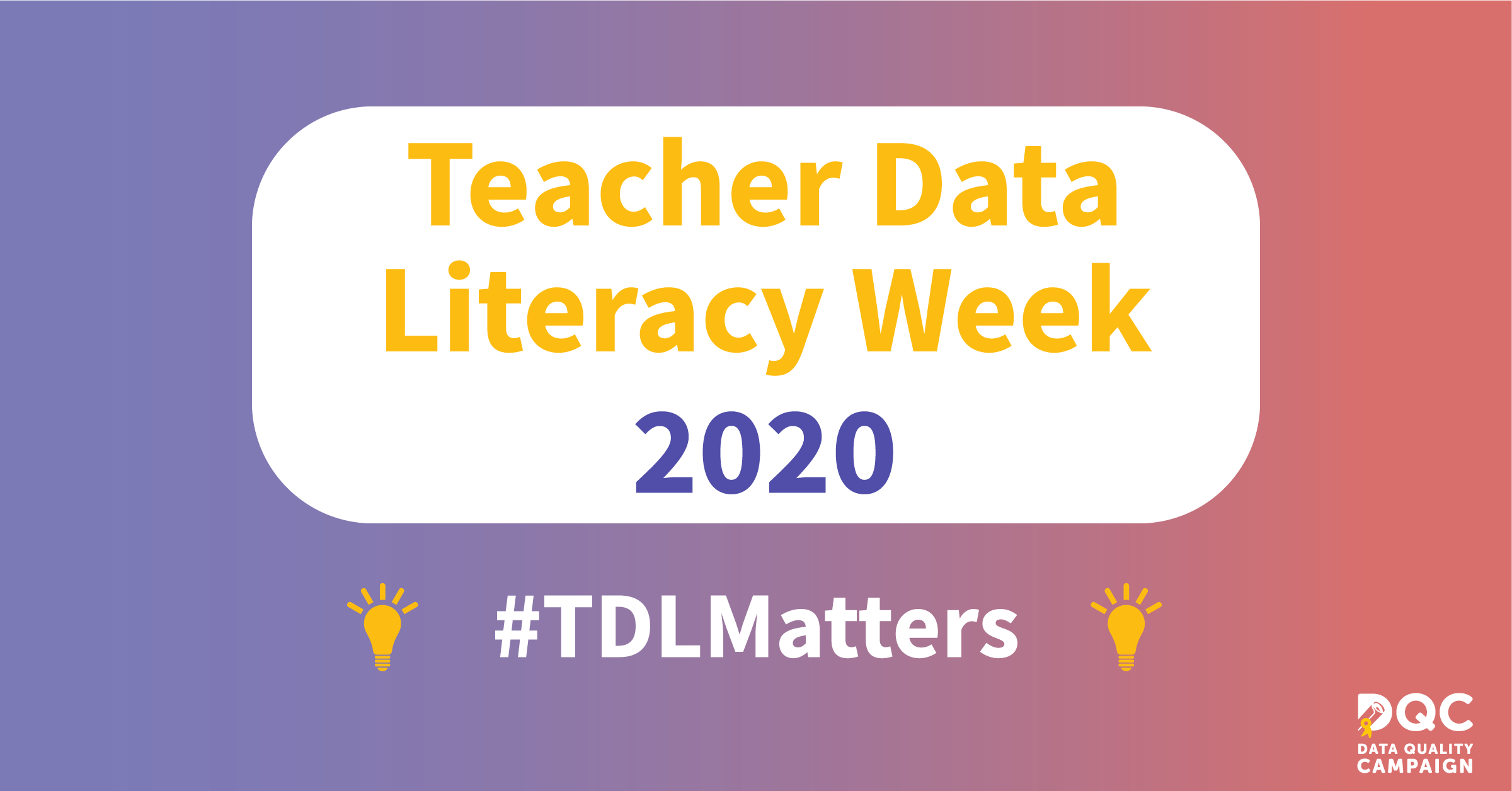Today, we conclude Teacher Data Literacy Week 2020 – an opportunity to elevate why data-literate teachers are so important to student success and highlight the actions that can be taken to support teachers in building these skills. In this blog post, DQC Director of Policy and Advocacy Brennan McMahon Parton offers recommendations for what states can do to support teacher data literacy.
Teachers matter for student success. In order to provide the best support for their students possible, teachers need the skills to use data as one tool in their tool box. Great teachers are able to use data to inform instruction, identify student needs, and provide individualized student support.
We know that teachers value and use data, but they also face significant barriers in using data effectively. Now with the COVID-19 pandemic shifting schools across the country to distance learning models, teachers need to be able to nimbly use the information that is available to them to support student learning. Much of the data teachers need right now is as simple as who is, and is not, showing up for class. Knowing what to do with that information—how to communicate, marshal resources, and tailor practice to student needs—are the same skills teachers need in a regular classroom setting, but have taken on new urgency during a time of disruption.
Now as always, state support is critical to making sure that districts, schools, and classrooms have the supports and conditions that make data use possible for educators. To date, too few policies and practices demonstrate the importance of supporting teacher data use. When state leaders can focus on not only responding to the crisis, but also deploying lessons learned from this time of disruption to improve education, there are clear action steps that they can take to support teacher data use.
In order to support teachers as they use data:
- Make sure that data literacy skills are taught and practiced as part of delivering instruction beginning in pre-service programs. The point of data literacy is not compliance or accountability. Teachers need data to help identify student strengths and weaknesses, and chart the best path forward. Too often, data use is treated as a one off or only in service of meeting reporting and accountability requirements. As early as their training programs, teachers need experience examining data as part of how they prepared and deliver instruction.
A5: #TDLmatters is not ANOTHER THING… it is part of the process of designing instructional activities that move the needle on student achievement. I like doing data webs – where Ts make connections between all the data they have and the learning goals they are working toward.
— Char Shryock (@edtechgirl) April 30, 2020
- Ensure that teachers know how to access information from digital resources. As educators are deploying technology to support instruction, their career-long training should make sure that they know how to collect data on the fly – via classroom resources like exit tickets, through formative and summative assessments, and from digital tools.
A3: In some ways, the shift to online learning can enable even more data driven instruction. Leaders should make sure that the platforms they are using provide useful data and that they are helping teachers use that data to sustain student learning during this time. #TDLMatters
— GreatSchools.org (@GreatSchools) April 30, 2020
- Support the creation of one-stop-shop tools that allow teachers to review data nimbly. Three or four log ins? Systems that don’t talk to each other? Proprietary tools for each assessment? Our teachers and students don’t have time for that. States should ensure that getting to data they need is easy for teachers, not cumbersome.
A4: It is crucial that data literacy becomes a continually integrated aspect of teaching. Districts & schools should develop data infrastructure & procedures for both during & after the crisis. (1/2) #TDLMatters
— NCTQ (@NCTQ) April 30, 2020
- Enable parents to be partners in their student’s learning. Parents also need access to both their student’s day-to-day and longitudinal information in a format that is easy to use and understand. As millions of parents do their best to support their kids while they learn at home, leaders can no longer treat this as a nice to have—it is a necessity.
A2: All of us must work together to ensure teachers, parents and school leaders have the best, most accurate information to support the profession of teaching and our children’s learning and success. #TDLMatters
— NationalPTA (@NationalPTA) April 30, 2020


